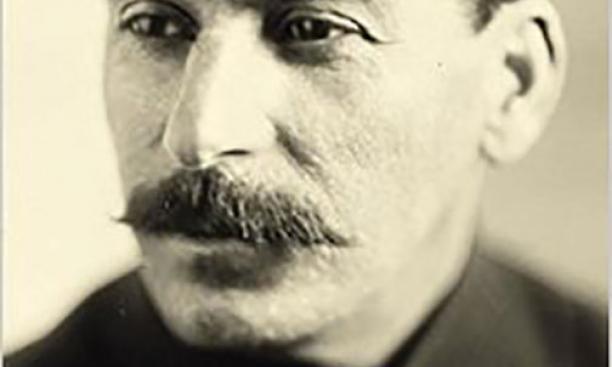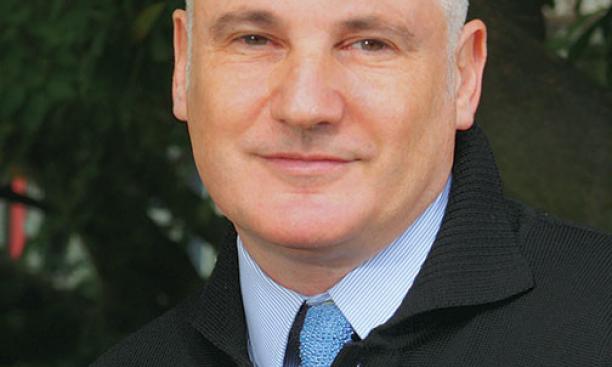

For the last 11 years, history professor Stephen Kotkin has pored over thousands of once secret documents to understand how a poor cobbler’s son named Ioseb Jugashvili transformed himself into Joseph Stalin, whom Kotkin calls “one of the great murderous tyrants in world history.” Everything about the man who ruled the Soviet Union was outsized, from the huge swath of the world he presided over to the three decades of his rule. Tracking his unlikely rise is a Herculean task: Stalin: Volume 1: Paradoxes of Power, 1878–1928, which covers Stalin’s life from his birth to the launch of his disastrous policy of collectivization, runs more than 700 pages and is the first of a planned three-volume biography. Kotkin spoke to PAW about Stalin’s rise to power and what his research taught him about the nature of evil.
What drew you to Stalin?
Is there a bigger subject in history than Stalin? He was responsible for culture, the economy, politics, foreign policy. Imagine Washington, New York, and Los Angeles — the federal government, the financial markets, and Hollywood — all under the control of a single person. The time period he lived in [spanned] World War I and World War II, and saw a dramatic, total transformation of one-sixth of the Earth, with global repercussions.
How did Stalin rise to power?
It was unimaginable that someone like Stalin — the son of a washerwoman and a cobbler — became the ruler of Russia. For Stalin to get anywhere near power, the whole world order had to be destroyed — and it was, in World War I.
How he eventually became Stalin has to do with his acquisition of deep Marxist convictions when he was young and in the seminary in Tiflis, and then his meeting and relationship with Lenin. Of course, there was luck as well. Lenin appointed Stalin general secretary of the Communist party in April 1922; the next month, Lenin had an incapacitating stroke. But Stalin also showed uncommon skill in creating his personal dictatorship. Dictatorships do not arise automatically; they have to be built, and it is not easy.

When we think of 20th-century villains, Hitler usually tops our list. Are we more forgiving of Stalin because he was our ally in World War II?
Stalin had more than 1 million people put to death for crimes they did not commit. More than 10 million more died in famines. Several million more died in frozen wastes, where they had been deported to dig for gold with their bare hands. At the same time, history is never going to be able to wipe out the fact that Stalin was in power during the victory over Hitler in the largest-scale war ever. Stalin presided during the Soviet Union’s transformation from poor peasant land to nuclear-armed superpower. And so even though the scope of his murder and terror was so vast, Stalin’s rule will never be seen as irredeemable like Hitler’s.
You examined materials from formerly secret archives. What did you find?
An immense amount of declassified archival documents has been published in the past 15 years and is sitting in multivolume collections in Firestone. They show that the Communists, including Stalin, spoke the same way behind closed doors as they did in public. Communist ideas were pernicious; I do not share them. They caused unbelievable grief. But Stalin held those convictions deeply, and he followed them. The shock is how he was able to realize those ideas. It’s one thing to believe you must eradicate capitalism. It’s another thing to actually try that and moreover to succeed, unfortunately.
What was the biggest thing you learned doing this research?
Evil in some ways becomes more horrifying when the evil person is humanized. He made absolutely ruthless, cold-blooded decisions alongside a sincere commitment to social justice. He was a man who was both utterly charming and utterly vicious, a shrewd Machiavellian who was also often blinkered — misdiagnosing fascism, for example. I discovered a Stalin I did not know, despite teaching the subject for 26 years. Interview conducted and condensed by Merrell Noden ’78
